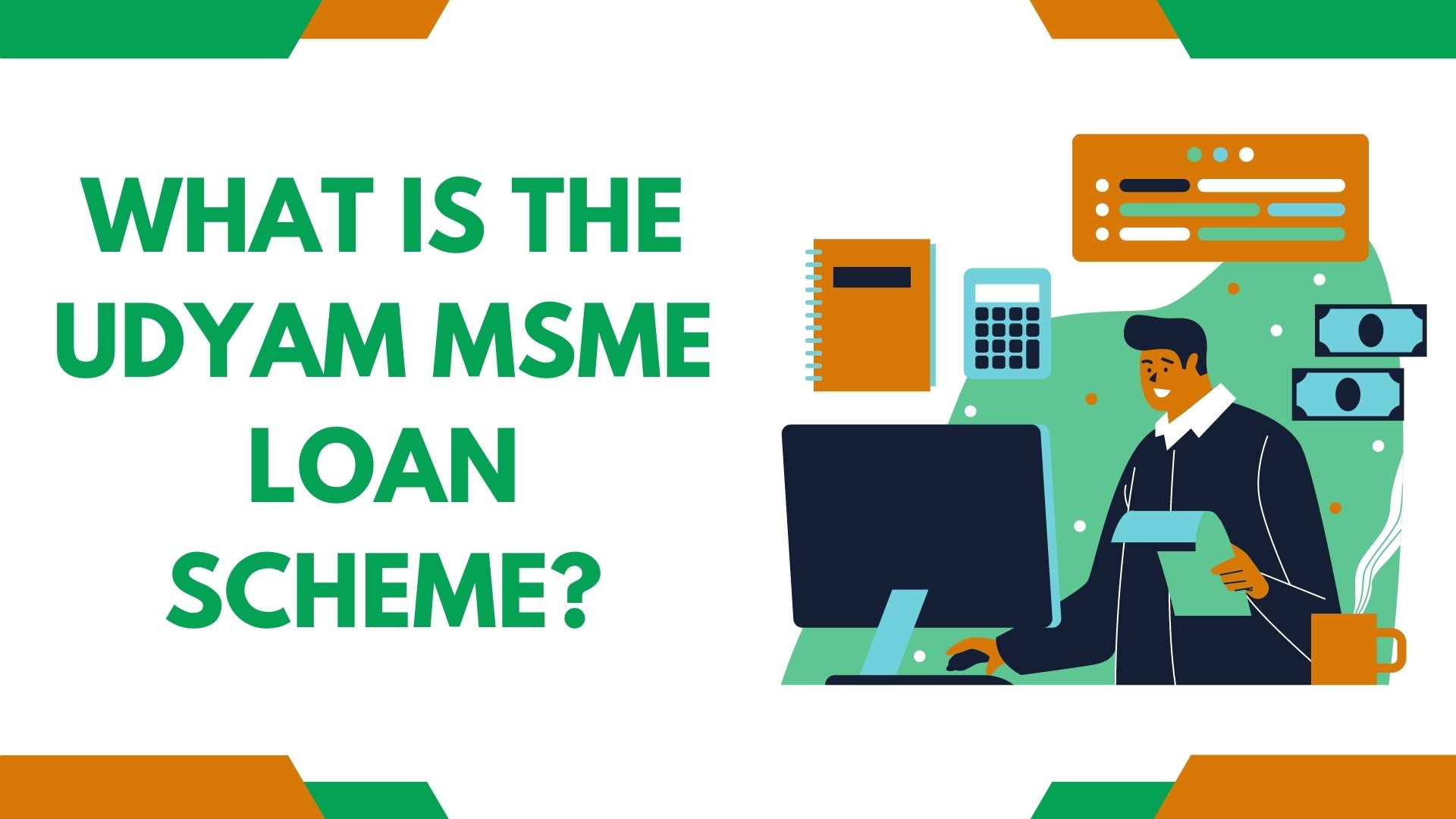The most critical issue facing the MSME sector is a shortage of capital. Because the micro, small, and medium-sized business sector has long been in turmoil. Additionally, a significant number of MSMEs have shut their doors recently. The MSME lending scheme is like a life elixir in such a situation. The MSME lending plan is a program in which the federal government offers to provide business loans to needy MSMEs at a reduced interest rate, for a longer period of time, and with no guarantees.
Numerous various business finance initiatives are governed by the MSME financing system.
Also, read- udyam registration portal
All lending programs aim to increase small firms’ access to capital. The following MSME financing options are readily available right now:
- A credit guarantee lending plan for micro and small firms is available through the PMEGP (Prime Minister Employment Generation Program) (CGTMSE)
- ZipLoan is a microloan scheme for small businesses..
- The Pradhan Mantri Mudra Loan Scheme is a government-sponsored program that provides low-interest loans to low-income
Ministry of Micro, Small and Medium Enterprises, Government of India, detailed information about the Pradhan Mantri Mudra Loan Scheme The major purpose of this program is to help small and medium-sized enterprises stay viable by providing financial assistance. Under the Mudra Loan Scheme, small and medium-sized businesses in three categories are eligible for collateral-free loans of up to Rs 10 lakh.
The government of India’s Ministry of Micro, Small, and Medium Enterprises provides full information about the Pradhan Mantri Mudra Loan Scheme. Giving small and medium-sized enterprises financial support so they can continue operating is the main goal of this initiative. Small and medium-sized enterprises in three categories are eligible for collateral-free loans of up to Rs 10 lakh under the Mudra Loan Scheme.
Under the Mudra system, numerous paper documents are needed to obtain a loan. The following documents must be submitted:
- Photocopies of Aadhaar cards, PAN cards, voter cards, passports, bank passbooks, driver’s licenses, and other government-issued ID evidence are required. It’s crucial to keep in mind that each ID card photocopy must be self-attested.
- Any government-issued address proof that shows you live at that address, such as an Aadhar card, a residence certificate, an electricity bill, a water bill, and so on.
- A copy of your bank statement that is at least three months old must be provided.
- a copy of the certificate of caste You’ll need it if you’re from a reserved caste and wish to use it.
- Any license, registration certificate, or other document related to your company must include verification of your company’s identity and address. This is proof that you are the company’s owner.
- If you wish to take out a currency loan to buy business machinery, you might attach a document stating the value of the machinery. If you are sending a copy of the machinery bill, you must also include the name of the machinery provider, a report on what will be positive in your company as a result of the machine’s arrival, and the amount of raw material that will be required.
The Credit Guarantee Fund Trust (CGTMSE) is a joint venture of the Ministry of Micro, Small, and Medium Enterprises and the Central Government. Small and medium-sized businesses can borrow money with a government guarantee under the CGTMSE program. MSME traders do not need the assistance of a third party to obtain a loan through this program.
The Credit Guarantee Fund Trust (CGTMSE) was established as a joint venture between India’s Small Industries Development Bank and the Ministry of Micro, Small, and Medium Enterprises (SIDBI). Micro, small, and medium-sized firms can borrow up to Rs 2 crore from an authorized bank using this fund’s guarantee.
The assistance package was announced by the Finance Minister in order to get the economy back on track following the lockdown. According to the proclamation, the Credit Guarantee Fund Trust (CGTMSE) would also recommend loans for MSMEs who are having financial difficulties. MSMEs in financial hardship have been given loans of up to Rs 1 crore.
Information That Is Important Regarding the Credit Guarantee Fund Trust (CGTMSE)
- The Credit Guarantee Fund Trust (CGTMSE) assumes the risk of providing a loan to a small business because the primary goal of the CGTMSE programme is to guarantee loans to financial institutions that make loans to small businesses.
- MSMEs who are unable to repay their MSME loans within the agreed-upon time limit are eligible for a portion of the loan from the Credit Guarantee Fund Trust (CGTMSE). As a result, there’s no need to worry about potential entrepreneurs taking out loans.
- On loans up to Rs 5 lakh, the Credit Guarantee Fund Trust (CGTMSE) guarantees 85 percent repayment.
- Repayment is guaranteed at 75 percent or, in some situations, 85 percent of the loan amount for loans up to Rs 50 lakh.
- For loans of up to Rs 50 lakh but less than Rs 100 lakh, a 50% guarantee is provided. The Credit Guarantee Fund Trust (CGTMSE) guarantees a maximum payback of 80 percent of the maximum 50 percent of the money on the loan if the loan is taken out in the name of a woman trader or in the Northeast Region (NER).
Suggested read- udyam registration
ZipLoan is an MSME business loan program
ZipLoan is the largest provider of micro, small, and medium-sized company loans in the United States. ZipLoan, the country’s largest non-banking financial company, provides entrepreneurs with up to 7.5 lakh in business loans in three days with minimal documentation.
Applying for a business loan is simple with ZipLoan because the entire procedure is done online. Following the submission of an online application, the applicant is contacted by a loan officer from the organisation, who completes the business loan application process.










I do not even understand how I ended up here, but I assumed this publish used to be great
Very nice blog post. I definitely love this site. Stick with it! .
I think the admin of this site is really working hard for his website since here every stuff is quality based data.
This post post made me think. I will write something about this on my blog. Have a nice day!!
As I website owner I believe the content material here is really good appreciate it for your efforts.
Pretty! This has been a really wonderful post. Many thanks for providing these details.
Very nice blog post. I definitely love this site. Stick with it! .
Comments are closed.